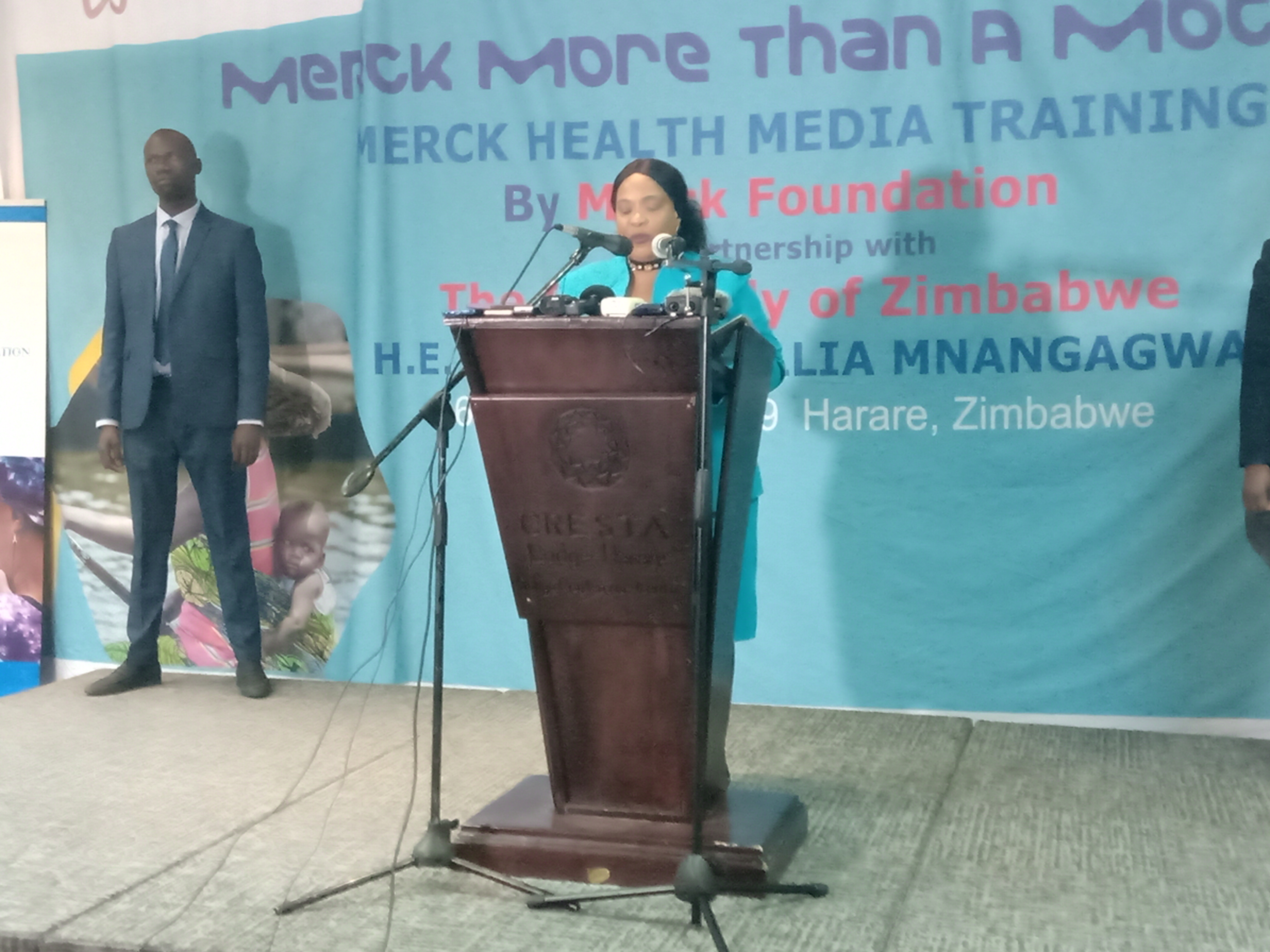By Byron Mutingwende and Tatenda Mujeyi
First Lady Amai Auxillia Mnangagwa on Monday 16 September 2019 said the media plays an important role in addressing issues of stigma relating to infertility.
She was addressing a health media training workshop where she rallied the media to bring out the message that ‘infertility affects men and women” hence the need to fight stigma and the blame game often apportioned to women.
The event was organised by the First Lady led Angel of Hope Foundation in collaboration with the Merck Foundation under their “Much more than a Mother” project.
“We have so far looked at cancer treatment, diabetes mellitus and hypertension and the area of infertility for which we are gathered here to discuss,” Mrs Mnangagwa said.
Merck Foundation has pledged to train 10 doctors in diabetes mellitus and hypertension while the other four are being trained in India in areas of infertility and embryology.
“We want the media to bring out the message that infertility affects men and women. This cannot be a blame game. Yet we know in our societies that women bear the brunt of this problem. This can be a basis of sexual and or physical abuse, divorce or isolation from the family structure.
“In Africa, infections are the major causes of infertility. Traditional, cultural and religious practices combined with low resources can be catalysts for these conditions. Factors that include poor nutrition, untreated sexually transmitted infections, unsafe abortions, consequences of genital mutilation and exposure to smoking also promote infertility; hence both men and women are affected equally,” the Fist Lady added.
The training emphasised the need for a paradigm shift from the patriarchal conceived norm of perceiving infertility to be a feminine issue.
“There is need for a shift from the traditionally held view that infertility affects women to a realistic understanding of the truth that infertility affects both men and women. If this is understood, we are better knowledgeable so as to inform on the necessary reporting prerequisite,” Dr. Gerald Madziyire, a gynaecologist with the Ministry of Health and Child care said.
The workshop also called on the ministry to constantly facilitate such trainings that better positioned media personnel to inform their audience.
“There is need to constantly facilitate such workshops as they not only enhanced journalist’s professionalism in dealing with health and specifically infertility issues. The platform also brings the media personnel to generate an understanding on the specific technical issues related with Health reportage,” Director of Content Service in the Ministry of Information, Broadcasting Services, Tarzen Mandizvidza said at the training.
The training explored challenges that media personnel face in fully performing their function (informative function) that was affecting health reportage.
“The media as the fourth estate has an important function in conveying information to their audience. However, this is hampered by existent impediments within the media industry. These which are not limited to but include editorial policies, remuneration challenges, financial muscle of the media funders among other issues,” Mandizvidza also said.
The workshop emphasised the need for media personnel to assume the highest level of professionalism to facilitate accurate reportage.
“The media personnel in addressing the issues of concern within the health sector in general and infertility in particular should adopt the highest possible levels of ethical character. Transparency, integrity and ethics are key components of reporting that media practitioners should abide to,” Ministry of Health and Child Care Public Relations Officer Mr. Donald Mujiri said.
The training also coincided with a familiarisation on the Meck foundation funded media awards on fertility whose deadline is December 2019.
“As you should have seen on the document given to you, we are also taking time to award excellence across many media sectors so as to recognise contribution as well as encourage coverage on fertility issues.” Merck Foundation representative Winnie Bortha said.
The workshop unveiled an opportunity for media practitioners to generate more knowledge on the health related specifications.
“We urge media practitioners to generate technical appreciation for the specialist health terms which when not understood by the writer may obviously translate to distorted media productions by media personnel,” Dr Madziyire added.
The training included journalists from the print, online and broadcasting media and was officiated by the First Lady Amai Auxilia Mnangagwa.
